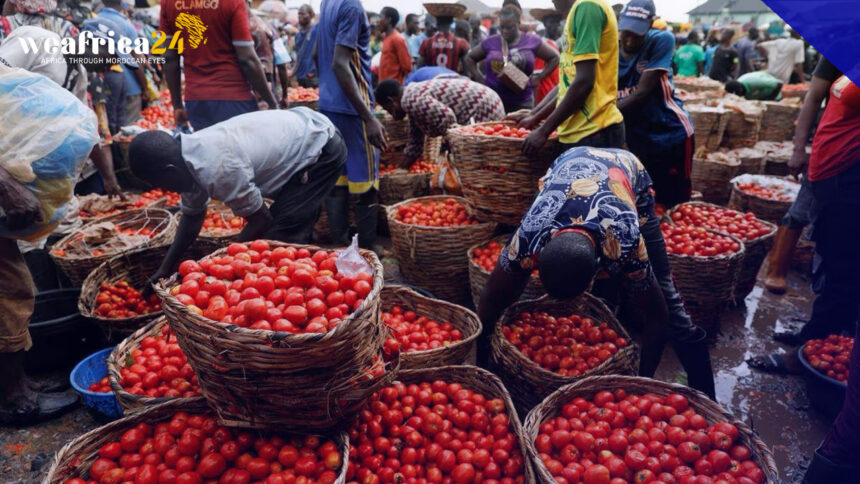In July, Nigeria experienced a surge in its annual inflation rate, reaching a peak not seen in almost twenty years, registering at 24.08%, a notable increase from the previous month’s figure of 22.79% in June. This escalation exacerbates the ongoing challenges related to the cost of living within Africa’s largest economy, concurrently with the implementation and impact of President Bola Tinubu’s reform measures.
Since 2016, Nigeria has grappled with persistent double-digit inflation, resulting in the gradual erosion of both personal savings and income levels. Consequently, the central bank responded by implementing substantial interest rate hikes, reaching levels not witnessed in almost twenty years.
Implementing some of the most audacious reforms witnessed in recent years, Tinubu courageously eliminated a widely favored yet financially burdensome petrol subsidy. This strategic move led to a threefold increase in prices, while simultaneously dismantling the constraints on foreign exchange trading, resulting in a depreciation of the naira by over 40%.
The segment is primarily responsible for Nigeria’s inflation compilation, food inflation, surged to 26.98% in July, reflecting a notable increase from its June value of 25.25%.
Financial experts, including entities such as the World Bank, had preemptively cautioned that the devaluation of the currency and the withdrawal of fuel subsidies would likely exert upward pressure on inflation within the immediate timeframe.
In the face of mounting price escalations consequent to his reform initiatives, Tinubu, under significant scrutiny, has steadfastly justified his course of action. He asserts that Nigeria has realized substantial savings exceeding a trillion naira in a span slightly exceeding two months since the inception of these reforms.







